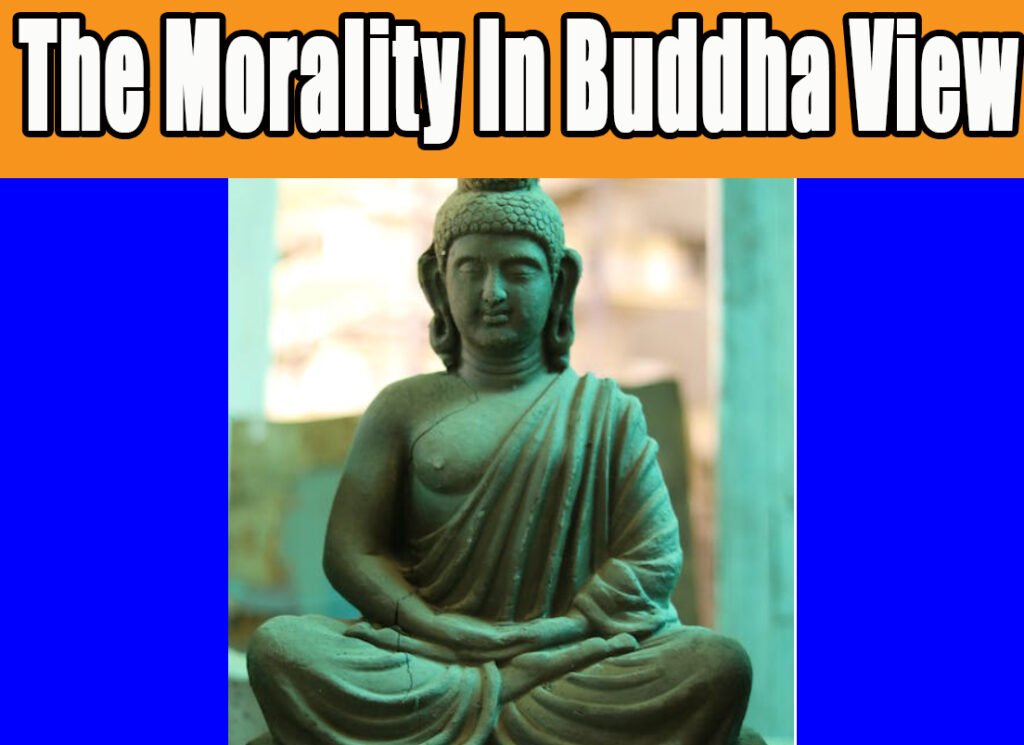
The word “Sila” (morality) is a Pali word which means normal on the authority of holding firmly -a state of not being scattered to the four winds of bodily actions, verbal actions, and mental actions and on the authority of approaching to support -to keep all kinds of wholesome actions without letting vanish.
Sila has Lakkhanãdicatukka as the following:
- Silanalakkhanam: comprising of regularity as its characteristic.
- Dussilyaviddhamsanarasam: comprising of the act of wiping out a state of being immoral as its function.
- Soceyyapaccuppatthanam: comprising of cleanliness as its exact aura.
- Hirottappapadatthanum: comprising moral shame and moral dread as its closest cause.
In the name of Buddhists, we must be moral. The moral precepts for lay Buddhist disciples are Niccasila (five precepts), Uposathasila (eight precepts), and Atirekasila (ten precepts).
The five precepts are abstention from killing living beings is one, abstention from stealing others’ possessions is one, abstention from committing immorally with others’ wives and daughters is one, abstention from telling lies is one, and abstention from taking intoxicants and using addictive drugs is one. The eight precepts are refraining from killing living beings is one, refraining from stealing others’ properties is one, refraining from having sexual intercourse is one, refraining from telling lies is one, refraining from taking alcoholic drinks and using abusive drugs is one, refraining from eating after mid-day is one, refraining from dancing, singing, playing instruments and watching entertainments; and beautifying the body with all sorts of make-up is one, and refraining from lying or sitting on too high and too good a lying and sitting place is one.
The ten precepts are abstaining from killing living creatures is one, abstaining from stealing others’ belongings is one, abstaining from having sexual relations is one, abstaining from telling lies is one, abstaining from taking all kinds of liquor and taking illegal drugs is one, abstaining from eating after mid-day is one, abstaining from dancing, singing, playing instruments and watching enter- attainments is one, abstaining from beautifying the body with all sorts of make-up is one, abstaining from lying or sitting on too high and too good a lying and sitting place is one, and abstaining from keeping one’s own gold and money by oneself is one.
Whenever Buddhists are perfect in moralities, they will meet with affluence in their lives both in this world and the next world and will also attain ultimately supramundane bliss. It is the same as the Buddha’s affirmation: “Living beings have chances to reach a happy course of existence as a result of moralities, are rich in consumer items as a result of moralities, reach the place of extinction of suffering (nirvana) as a result of moralities, due to those reasons, all living beings have to purify their own moralities.” Alternatively, moralities lead to many other consequences as Silavatthera declared in the discourse scripture of Khuddakanikaya Theragatha as follows;
- “Silamevidha sikkhetha, assmim loke susikkhitam, silam hi sabbasampattim, upanameti sevitam.
One has to study morality as what has been well-studied in this world since morality that one is associated with always brings out all forms of adequacy.
- Silam rakkheyya medhavi, patthayano tayo sukhe, pasamsam vittiläbhañca, pecca sagge pamodanam
A wise man, when he wants to acquire three types of contentment, praise, delight, and after passing away from this life enjoy heavenly bliss, must practice morality.
- Silavã hi bahu mitte, saññamenãdhigacchati, dusilo pana mittehi, dhamsate papamacaram.
Of course, one who is moral always makes a lot of friends out of self-discipline; conversely, the immoral one, when he commits demerits, is always separated from friends.
- Avannañca akittiñca, dussilo labiate naro, Vannam kittim pasamsañca, sada labhati sîlavã.
The immoral one always acquires both condemnation and criticism; in opposition, the moral one always acquires both commendation and fame all the time.
- Adi silam patitthã ca, kalyananañca matukam, pamukham sabbadhammanam, tasmă sîlam visodhaye.
Morality is the initiation, the sustenance, the head of all merits, and the chief of all phenomena, owing to those reasons, one must purify morality.
- Velã ca samvaram silam, cittassa abhihasanam, titthanca sabbabhuddhanam, tasmă sîlam visodhaye.
Morality is the bank, the dam, the amusement. The dock of all the Buddhas; because of those reasons, one must purify morality.
- Silam balam appatimam, silam avudhamuttamam, silam abharanam settham, silam kavacamabbhutam.
Morality is the incomparable power, morality is the superb weapon, morality is the excellent decoration, and morality is the miraculous armor.
- Silam setu mahesakkho, silam gandho anuttaro, silam vilepanam settham, yena vati diso disam.
Morality is the dominant bridge, morality is the splendid fragrance, morality is the fine ornament, always blows in all directions.
- Silam sambalamevaggam, silam patheyyamuttamam, silam settho ativaho, yena vati diso disam.
Morality is the beneficial package of food, morality is the magnificent provision, and morality is the best vehicle to move in all directions.
- Idheva nindam labhati, peccãpaye ca dummano, sabbattha dummano balo, silesu asamahito.
The evil-doer, who is malevolent everywhere, does not stand firm in morality, always acquires blame in this existence, and after passing away, is always miserable in a woeful abode.
Morality is the dominant bridge, morality is the splendid fragrance, morality is the fine ornament, always blows in all directions.
- Idheva kittim labhati, pecca sagge ca sumano, sabbattha sumano dhiro, silesu susamãhito.
A wise man, who is benevolent everywhere, stands firm in morality, always acquires honor in this existence, and after passing away, is always delighted In his divine abode.
- Silameva idha aggam, paññava pana uttamo, manussesu ca devesu, silapaññãnato jayam.
Morality is the top in this world, as for the wise is.
Also supreme, triumphs both in the human and divine world are on account of morality and wisdom.
Morality should be kept well, because morality is called goodness, leading people to heights, There are people, devas, Nirvana, etc.

